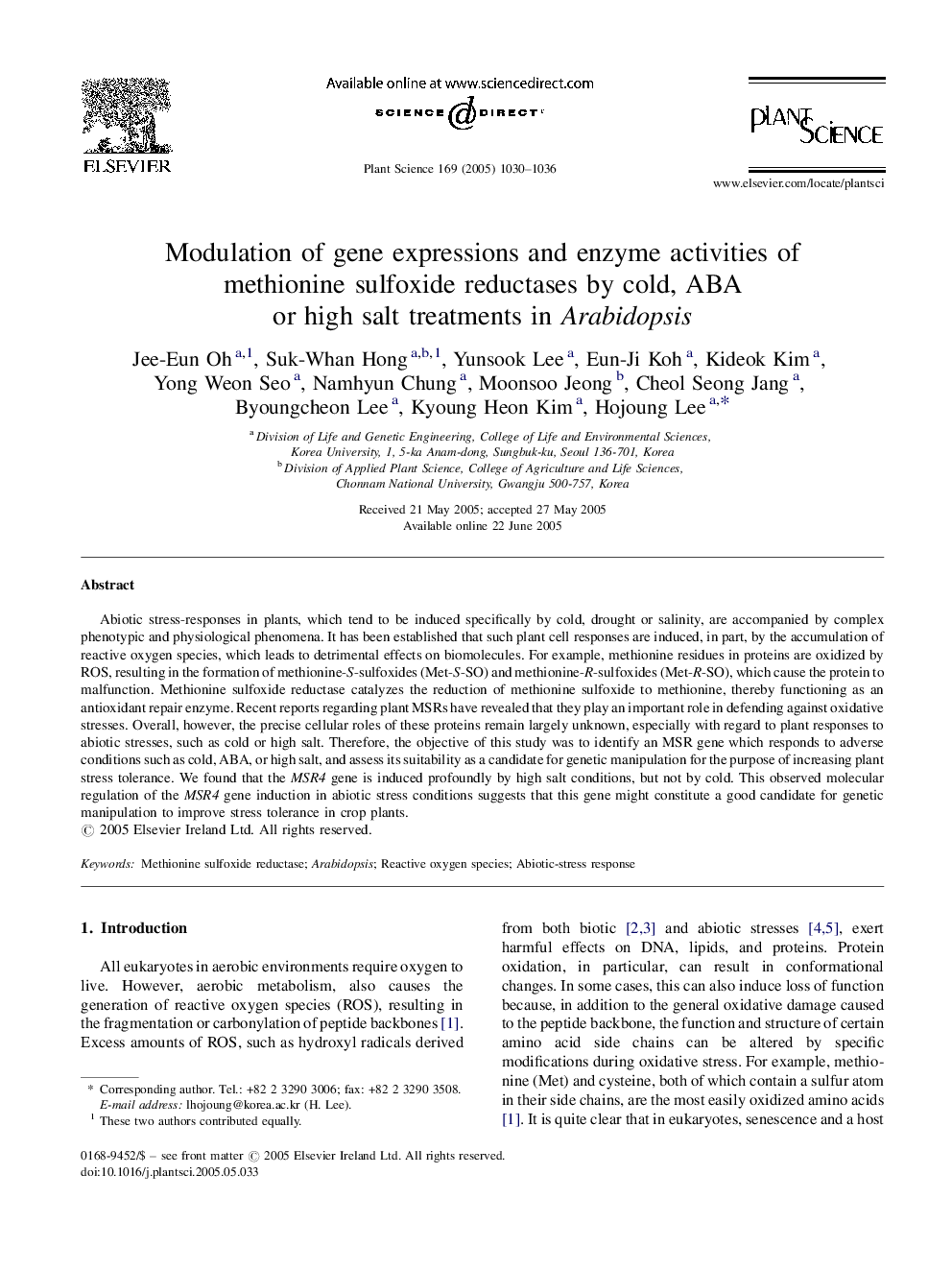| Article ID | Journal | Published Year | Pages | File Type |
|---|---|---|---|---|
| 10841371 | Plant Science | 2005 | 7 Pages |
Abstract
Abiotic stress-responses in plants, which tend to be induced specifically by cold, drought or salinity, are accompanied by complex phenotypic and physiological phenomena. It has been established that such plant cell responses are induced, in part, by the accumulation of reactive oxygen species, which leads to detrimental effects on biomolecules. For example, methionine residues in proteins are oxidized by ROS, resulting in the formation of methionine-S-sulfoxides (Met-S-SO) and methionine-R-sulfoxides (Met-R-SO), which cause the protein to malfunction. Methionine sulfoxide reductase catalyzes the reduction of methionine sulfoxide to methionine, thereby functioning as an antioxidant repair enzyme. Recent reports regarding plant MSRs have revealed that they play an important role in defending against oxidative stresses. Overall, however, the precise cellular roles of these proteins remain largely unknown, especially with regard to plant responses to abiotic stresses, such as cold or high salt. Therefore, the objective of this study was to identify an MSR gene which responds to adverse conditions such as cold, ABA, or high salt, and assess its suitability as a candidate for genetic manipulation for the purpose of increasing plant stress tolerance. We found that the MSR4 gene is induced profoundly by high salt conditions, but not by cold. This observed molecular regulation of the MSR4 gene induction in abiotic stress conditions suggests that this gene might constitute a good candidate for genetic manipulation to improve stress tolerance in crop plants.
Related Topics
Life Sciences
Agricultural and Biological Sciences
Plant Science
Authors
Jee-Eun Oh, Suk-Whan Hong, Yunsook Lee, Eun-Ji Koh, Kideok Kim, Yong Weon Seo, Namhyun Chung, Moonsoo Jeong, Cheol Seong Jang, Byoungcheon Lee, Kyoung Heon Kim, Hojoung Lee,
